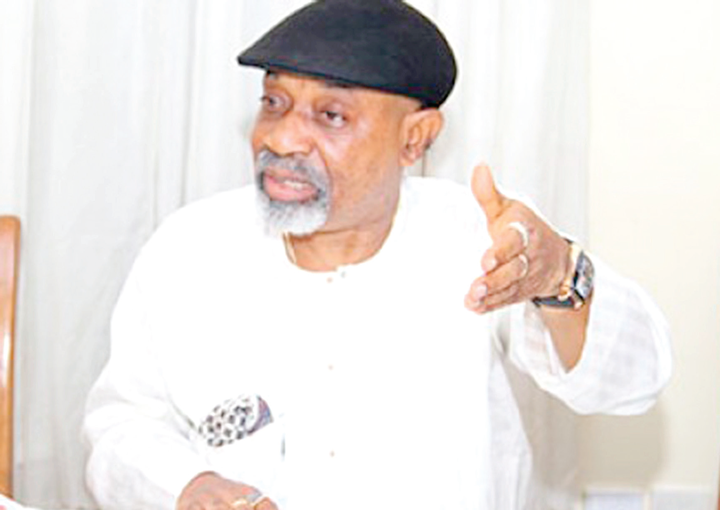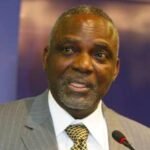In an age when political interviews often devolve into petty point-scoring, Dr. Chris Ngige’s recent outing was a masterclass in tact, self-awareness, and seasoned statesmanship. As one of the sharpest political minds our state has produced, Ngige spoke with the clarity of a man who has nothing left to prove — offering praise where it was due, defending his record, and, most notably, refusing to be weaponised against his own. Not that he has never engaged in a duet with Obi, but those exchanges were mostly localised family quarrels. Now that Obi has attained extraordinary national stature, Ngige, unlike others, has recognised when to join Nigerians of goodwill in rallying behind a cause greater than partisan rivalry. For this, kudos to him.
I watched that interview with genuine delight, having long acknowledged his intelligence and capacity for effective governance. Even during his tenure – when I criticised what I saw as his usurpation of power – I never denied the quality of his performance; my quarrel was always with the manner of his emergence, not his output in office.
When political forces harassed and buffeted him, I stood among his defenders. I remember him echoing the words of Cato the Elder, who often ended his speeches with “Delenda est Carthago” (“Carthage must be destroyed”). For him, those who burned Anambra State harboured a similar aim – the destruction of the state. I even wrote an article on that, highlighting his efforts to ensure that Anambra, like Carthage, would not be destroyed. That is why I can be counted among his quiet admirers: critical when principle demands it, appreciative when merit deserves it.
Ngige has always had a feel for the public mood. When Mr. Peter Obi entered the race for the presidency in 2023, and the tide of sentiment shifted heavily in his favour, Ngige did not allow himself to be dragged into reckless commentary. Asked directly who he would vote for, he replied that the secret ballot principle forbade such disclosure – an answer at once tactful, clever and unassailable.
I am told that he once confided to a friend that, having passed the “June” of his life, he would avoid mistakes he could never again have the chance to correct. That maturity – borne of age and hard lessons – still colours his words at 73.
On pensions and gratuities, Ngige told his interviewer: “There was nothing like outstanding gratuity when Peter Obi took over from me. There was no salary that was unpaid when he took over from me.” Technically, he is correct. This aligns with the record: Ngige paid what was due under his administration. This is what we have always said as could be confirmed from this link: https://www.facebook.com/share/1JBm9yWNpJ/?mibextid=wwXIfr. The arrears Obi met were from before Ngige’s time, and Obi cleared them. Both deserve commendation – Ngige for keeping his house in order, Obi for clearing inherited debts and faithfulness to his own. Sadly, it was under Chief Willie Obiano that pension and salary arrears returned from 2017 until his departure.
Ngige also recognised that many of the reforms he began – in education, health, and fiscal discipline – were continued by Obi. Since Anambra ultimately benefits, there is no need for debate. This acknowledgment was more than a compliment; it was a rare and gracious nod to the importance of continuity in governance. His metaphor was striking: he compared himself to a footballer who, after skillfully dribbling, passed the ball to Obi, who then scored – a well-placed pass indeed. However, in football, the master is usually the one who scores most goals. Yet, when Obi later handed the ball to his successor, the ball disappointingly vanished, and we are still searching for it.
One blemish on the interview came from the host, who suggested Obi had claimed there were no roads when he assumed office. This was unsubstantiated. Ngige should have asked him for evidence that Obi said so. In truth, Obi has repeatedly credited Ngige for his road network achievements. A leader’s shine is not dimmed by acknowledging a predecessor’s light.
Ngige also mentioned that he left 13.8 billion Naira for Obi, just as Obi left a substantial amount for Obiano. What can I say? I do not want to engage in any discussion that might spark unnecessary controversy. Ngige was a great governor!
Ngige closed the interview by affirming that Obi “did well” and “managed what I handed over to him very well.” That is no small statement. It came from a man whose political instincts remain sharp, and who – thankfully – has resisted being used against his own brother and fellow Anambra son, a man many Nigerians now believe has the capacity to lead our country’s renewal. I commend him for the maturity he has shown in an era when too many people are too eager to parade themselves as willing instruments to be used.
For this, Ngige deserves commendation – not only for his service, but for showing that wisdom and political elegance can still survive in an age of reckless soundbites.
Follow us on all social media platforms @dailyquery for news and analyses around the globe.


























